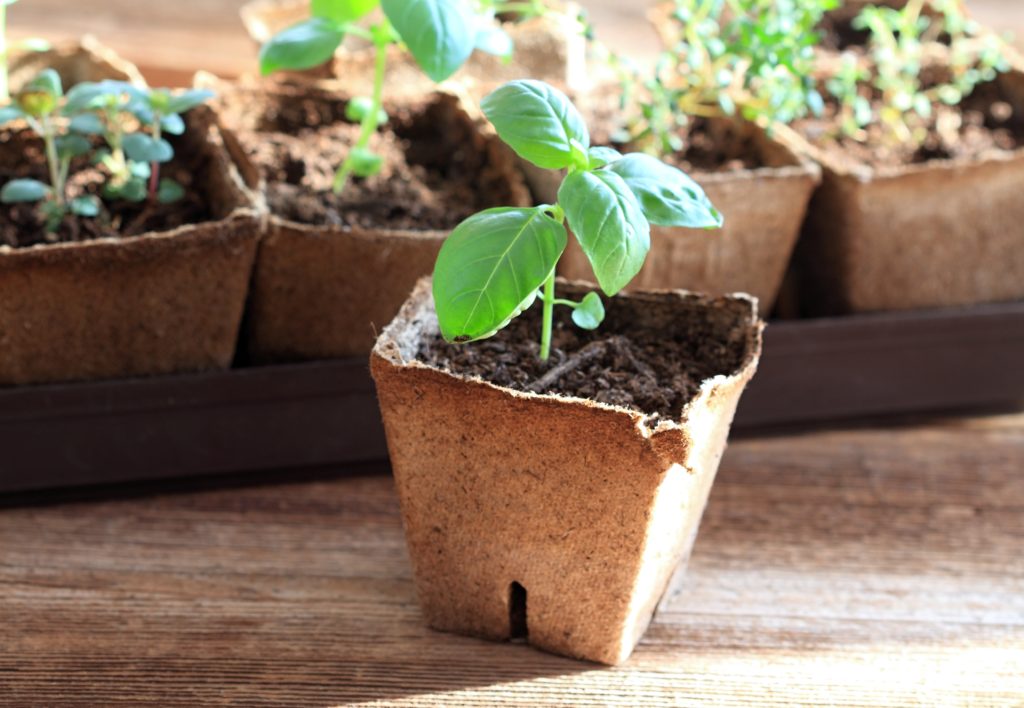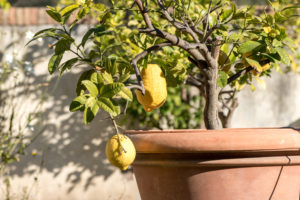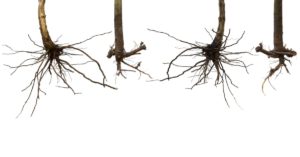As a gardener, you’re always looking for ways to be more sustainable. One way to do that is to use biodegradable pots instead of traditional plastic pots. But how long do biodegradable pots last?
Biodegradable pots last for around 18 to 24 months when unused. When planted into the ground or composted, they will break down completely in less than 6 months. This way, they are great for the environment.
Of course, there are lots of variables that go into using and recycling biodegradable pots. In this post, we’ll tell you everything you know about how to use them – and why you should. Keep reading to learn more!
How long do biodegradable pots last?

Most biodegradable pots last for around 18 to 24 months, but there are some caveats to this.
First, that timeline is for how long your pots will last in storage without losing some of their form and function – not necessarily how long they last in the ground.
Most biodegradable pots start breaking down and decomposing in the ground much faster than that, generally within four weeks to three months. This makes it easier for the plants that they contain to get oxygen and water to their roots.
It also depends on what kind of pot you are using. Biodegradable pots that are made out of materials like peat, bamboo pulp, wheat straw, cornstalks, and rice hulls all last for about 18 to 24 months, the figure cited above.
However, there are some that last even longer. Certain types of containers, such as those made out of grain husks, can last for as long as five years and even withstand freezing and thawing. Because of this, they aren’t meant to be planted in the ground since they’ll restrict plant growth, but they can be composted, where they’ll break down slowly.
What are biodegradable pots made of?

Biodegradable pots can be made out of a variety of materials. Also known as plantable containers, each individual material used in the construction of these pots offers its own unique benefits and disadvantages.
They can be made from any of the following materials:
- Peat
- Rice hulls
- Paper
- Straw
- Wood fiber
- Manure
- Coconut coir
Again, there are benefits and disadvantages associated with each type. Peat manure, and wood fiber, for instance, absorb more water than bioplastics, so they break down more quickly.
What are the benefits of biodegradable pots?

Biodegradable pots are extremely helpful when it comes to starting plants. They can help reduce transplant shock, which improves your plants’ survival rates since you don’t have to manipulate delicate plant roots out of a container. When plants are root bound, this can be particularly challenging, but biodegradable pots eliminate that concern. You can plant them directly into the ground!
Not only that but biodegradable pots can reduce transplanting expenses. Since you don’t have to buy multiple sets of seed trays, seed starting containers, and other gear, you’ll have more money to spend on other things in your garden.
Durable enough for short-term use, these pots can be planted directly into the ground. They’re better for the environment since they add nutrients and structure to the soil as they decompose. Plus, they eliminate the need to use costly and damaging disposable plastics.
You can use biodegradable pots for both ornamental and horticultural plants. In addition to the benefits listed above, it’s also important to note that these containers can help stabilize temperatures in the substrate, which can avoid root injury, particularly in warm climates.
Here’s how it works.
Biodegradable pots are typically used for starting seeds indoors. You’ll plant your seeds in these biodegradable pots just like you would any other kind of plant.
Once your plants are ready to go outside, you’ll put the entire pot into the ground without removing the plant first. You can do this because the plant containers are made out of materials that will break down quickly. The roots can grow right through the pots’ walls.
How long do biodegradable pots take to degrade?

Again, that depends on the type of biodegradable pots that you are using. Usually, they’ll degrade in the soil in just a few weeks. However, you need to be very specific about what kind of product you buy.
When you are shopping for biodegradable pots, it’s important that you look for those that are described and marketed specifically as “biodegradable.” Don’t choose those that are solely compostable or made out of recycled plastic or bioplastic.
These containers aren’t necessarily meant for growing plants directly in the ground – you may find that you still have to remove the plant before transplanting in order to give its roots enough space. What those marketing terms mean is that they can be recycled or externally composted – not that they will break down enough to support, and not hinder, plant growth.
Do biodegradable pots work?

Biodegradable pots do work. However, in order to make sure that they work properly for you it’s important to consider a few factors.
First, think carefully about how long the plant will take to start versus how long it takes the container to degrade. Biodegradable pots don’t really make as much sense for plants and vegetables with short growing seasons, like lettuce, because they won’t even be broken down yet by the time the plant is mature.
You should also consider your climate, soil type, and the overall cost.
Biodegradable pots are more expensive, at face value than plastic pots, but you may find that it’s worth it in terms of the time you save, and the number of plants you are able to save by not damaging their roots via the transplanting process. Not to mention that you’ll save money on the back end by not having to purchase as many materials for transplanting.
For some people, starting seeds indoors in biodegradable pots might not work, or make sense, simply because their growing season is long enough to make these efforts pointless. If you have a long growing season or better yet, can grow plants year-round, then you may want to skip the biodegradable pots and just sow seeds directly in your garden instead.
Final Thoughts
Biodegradable pots aren’t for everyone, but for some gardeners, they can be a real lifesaver. They can help to reduce the amount of time you spend transplanting – and even
If you’re looking for a more sustainable, plant-friendly option to grow our plants, consider planting in biodegradable pots.



